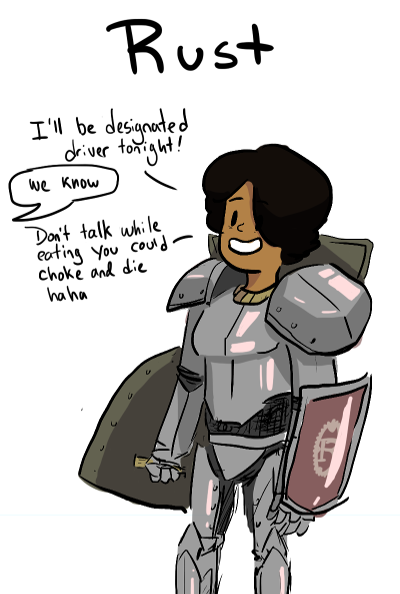A Gentle Introduction To Rust

Why learn a new Programming Language?
The aim of this tutorial is to take you to a place where you can read and write enough Rust to fully appreciate the excellent learning resources available online, in particular The Book. It's an opportunity to try before you buy, and get enough feeling for the power of the language to want to go deeper.
As Einstein might have said, "As gentle as possible, but no gentler.". There is a lot of new stuff to learn here, and it's different enough to require some rearrangement of your mental furniture. By 'gentle' I mean that the features are presented practically with examples; as we encounter difficulties, I hope to show how Rust solves these problems. It is important to understand the problems before the solutions make sense. To put it in flowery language, we are going for a hike in hilly country and I will point out some interesting rock formations on the way, with only a few geology lectures. There will be some uphill but the view will be inspiring; the community is unusually pleasant and happy to help. There is the Rust Users Forum and an active subreddit which is unusually well-moderated. The FAQ is a good resource if you have specific questions.
First, why learn a new programming language? It is an investment of time and energy and that needs some justification. Even if you do not immediately land a cool job using that language, it stretches the mental muscles and makes you a better programmer. That seems a poor kind of return-on-investment but if you're not learning something genuinely new all the time then you will stagnate and be like the person who has ten years of experience in doing the same thing over and over.
Where Rust Shines
Rust is a statically and strongly typed systems programming language. statically means that all types are known at compile-time, strongly means that these types are designed to make it harder to write incorrect programs. A successful compilation means you have a much better guarantee of correctness than with a cowboy language like C. systems means generating the best possible machine code with full control of memory use. So the uses are pretty hardcore: operating systems, device drivers and embedded systems that might not even have an operating system. However, it's actually a very pleasant language to write normal application code in as well.
The big difference from C and C++ is that Rust is safe by default; all memory accesses are checked. It is not possible to corrupt memory by accident.
The unifying principles behind Rust are:
- strictly enforcing safe borrowing of data
- functions, methods and closures to operate on data
- tuples, structs and enums to aggregate data
- pattern matching to select and destructure data
- traits to define behaviour on data
There is a fast-growing ecosystem of available libraries through Cargo
but here we will concentrate on the core principles of the language
by learning to use the standard library. My advice is to write lots of small programs,
so learning to use rustc directly is a core skill. When doing the examples in this
tutorial I defined a little script called rrun which does a compilation and runs
the result:
rustc $1.rs && ./$1
Setting Up
This tutorial assumes that you have Rust installed locally. Fortunately this is very straightforward.
$ curl https://sh.rustup.rs -sSf | sh
$ rustup component add rust-docs
I would recommend getting the default stable version; it's easy to download unstable versions later and to switch between.
This gets the compiler, the Cargo package manager, the API documentation, and the Rust Book. The journey of a thousand miles starts with one step, and this first step is painless.
rustup is the command you use to manage your Rust installation. When a new stable release
appears, you just have to say rustup update to upgrade. rustup doc will open
the offline documentation in your browser.
You will probably already have an editor you like, and basic Rust support is good. I'd suggest you start out with basic syntax highlighting at first, and work up as your programs get larger.
Personally I'm a fan of Geany which is one of the few editors with Rust support out-of-the-box; it's particularly easy on Linux since it's available through the package manager, but it works fine on other platforms.
The main thing is knowing how to edit, compile and run Rust programs. You learn to program with your fingers; type in the code yourself, and learn to rearrange things efficiently with your editor.
Zed Shaw's advice about learning to program in Python remains good, whatever the language. He says learning to program is like learning a musical instrument - the secret is practice and persistence. There's also good advice from Yoga and the soft martial arts like Tai Chi; feel the strain, but don't over-strain. You are not building dumb muscle here.
I'd like to thank the many contributors who caught bad English or bad Rust for me, and thanks to David Marino for his cool characterization of Rust as a friendly-but-hardcore no-nonsense knight in shining armour.
Steve Donovan © 2017-2018 MIT license version 0.4.0